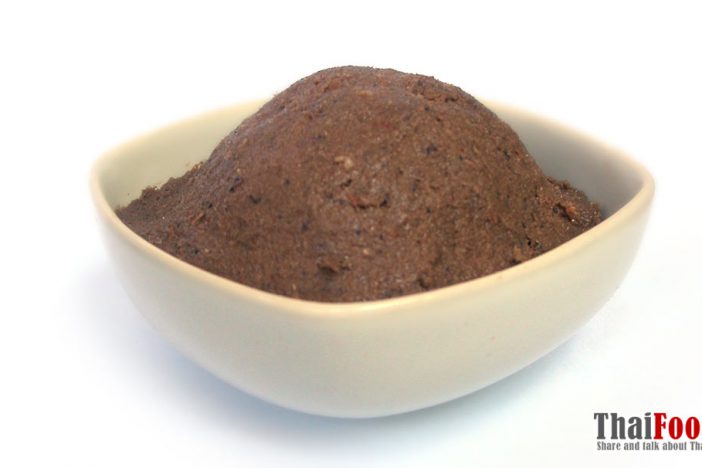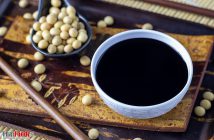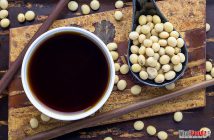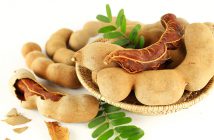Shrimp paste is used widely in many cuisines in Southeast Asia and southern China. In Thailand, it is a staple ingredient added in many dishes.
Many Thais agree that shrimp paste or กะปิ (kapi) smells horrible, but taste great when cooked. In Thailand, there are various types of the shrimp paste with different qualities, raw materials used and production process in each area. It is mainly made from a fermentation of small-size seawater shrimps with salt. Most Thai shrimp pastes are thick pastes with strong pungent odour and intensely salty flavour, varying from pinkish grey to dark brown in colour.
Besides fish sauce, shrimp paste is a staple seasoning providing saltiness with a distinct fragrance to many Thai dishes. it is always added in small amount in some dips, sauces, soups and most Thai curry pastes. However, there are some Thai dishes including this as a predominant ingredient. น้ำพริกกะปิ (nam prik kapi) or a spicy dip with shrimp paste, for instance, is popular eaten together with either fresh or parboiled vegetable or fried or grilled fish. หมูผัดกะปิ (moo phad kapi) is another delicious one that pork belly is stir-fried with chopped fresh hot chilies, chopped garlic, shrimp pastes and onion slices and flavour to taste with a bit of sugar. This is also a great dish with a tart flavour to try.
In making most Thai curry pastes, a small amount of shrimp paste is generally added at the final step. it not only adds additional fragrance and flavour, but also acts as a thickener to help these curry pastes are well formed. However, if the shrimp paste is added at the beginning step or during making these, they seem thick and difficult in pounding to grind remaining ingredients.
The higher quality shrimp pastes often have somewhat a milder odour and a better flavour. In Thailand, markets close to coastal villages producing shrimp pastes are good places for buying good quality products always available in small cakes or packed in jars. Outside Thailand, they can be found in stores selling Southeast Asian ingredients. An anchovy paste can make a good substitute.





